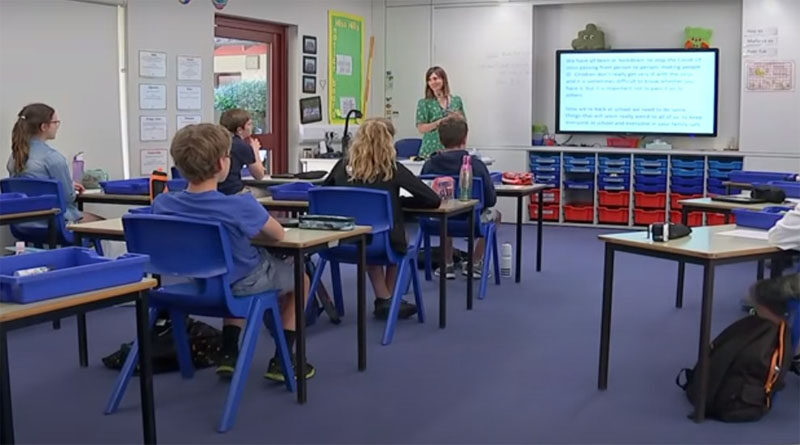School reopen in UK: Why Experts said COVID-19 is expected to increase as schools reopen
Many safety measures to prevent the transmission of coronavirus in schools have been relaxed, raising fears of an increase in COVID-19 infections as schools reopen in the UK. The government has been accused of a “hit and hope” approach over the comeback of students, as many protective measures to prevent the transmission of coronavirus in schools have been lightened.
Hundreds of thousands of students are going back to school this week, and specialists expect an increase in COVID-19 cases as a result of the restarting of schools in England and Wales.
Many protective measures to control the spread of the virus in schools have been reduced since the conclusion of the last term, causing anxiety among head teachers’ unions.
It has led to criticism that the administration is adopting a “hit and hope” policy for the return of students. As schools resume, there are fears that more children could contract COVID-19. How dangerous is the coronavirus to children, and might vaccine children as young as 12 prevent major infections?
Dr. David Strain, senior clinical professor at the University Of Exeter Medical School, believes the answer is simple: yes.
He told Bluelane News that the summer vacation “worked just as a protective barrier.”
What we are predicting now is a pick-up in levels and a jump in the R number to about 1.7, effectively doubling case numbers on a weekly basis. According to the most recent government data, England’s existing coronavirus replication ratio, or R-value, is between 1 and 1.1.
Since schools restarted and regulations were lifted two weeks ago, COVID- instances among young people in Scotland have grown massively. Experts have warned that by the end of September, massive levels of infection are “very expected” with the reopening of schools in the UK.
The vaccination distribution will have made “almost no impact” on too many students, according to the government’s scientific experts, because it presently only covers 16 and 17-year-olds, as well as those younger students at greater risk from the virus.
According to Dr. Strain, most children who obtain COVID-19 will suffer a “very, very severe condition” that is similar to severe cold. They can give it to parents, he noted that so there is a possibility of any unvaccinated parent’s children getting it, but that’s really where the risk comes.
According to the Joint Committee on Vaccination and Immunization (JCVI), approximately 30 people below the age of 18 died in England as a result of coronavirus between February 2020 and March this year.
A high temperature, sudden, continuous coughing, and a loss or change in the ability to smell or taste are the main signs of COVID-19 in children, according to the NHS. Asymptomatic infections in teenagers, according to Emma Duncan, professor of clinical endocrinology at King College London, are widespread.
Also read: Whipps Cross Hospital has suspended operations after the flood in the UK



